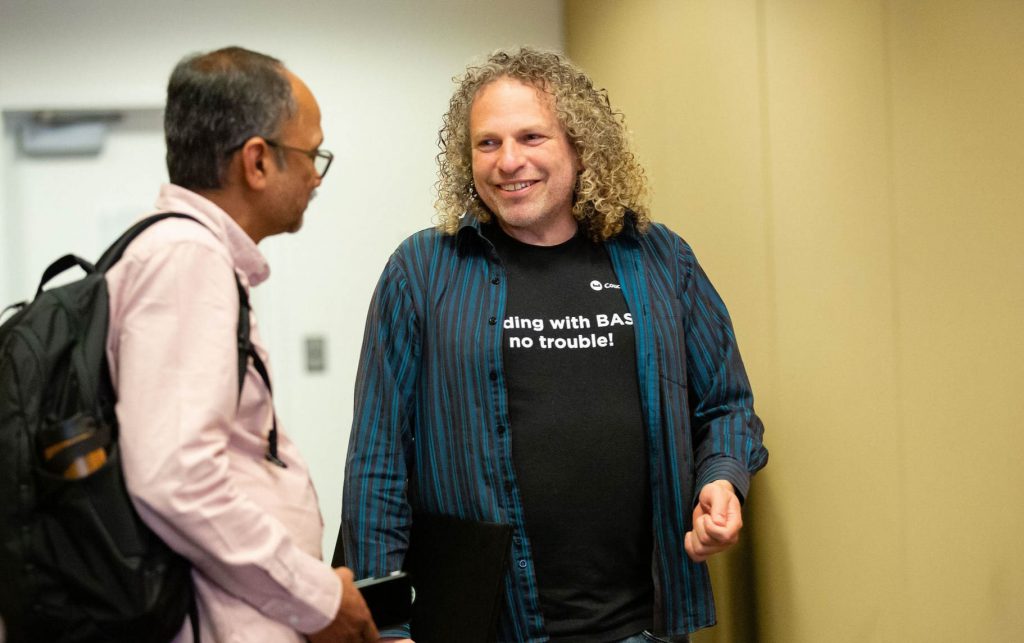About Us
An Open AI Engineering Consortium
MLCommons is an Artificial Intelligence engineering consortium, built on a philosophy of open collaboration to improve AI systems. Through our collective engineering efforts with industry and academia we continually measure and improve the accuracy, safety, speed, and efficiency of AI technologies–helping companies and universities around the world build better AI systems that will benefit society.
Our Five Key Principles
01
Grow AI markets and make the world a better place
02
Get everyone involved
- Be global, inclusive, and fair
- Bring together academia, small companies, large companies, non-profits, etc.
- Make it easy to get involved
- Be as open with our IP as possible while sustaining the community
03
Act through collaborative engineering
- Keep leadership mostly technical, with an emphasis on hands-on-involvement
- Favor data-driven decisions, design simplicity, and focus on real user value
04
Make fast but consensus-supported decisions
- Very low barrier for “experimental” working groups with well reviewed path to full endorsement
- Favor grudging consensus over 51/49 votes, especially for big decisions
- Make technical contributions easy
- Favor rapid development and iteration
05
Build a community that people want to be part of
- Be welcoming, informal, and friendly
- Encourage, recognize, and reward contributions
- Celebrate with cake

Our Mission
Our mission is to accelerate artificial intelligence innovation and increase its positive impact on society. In collaboration with our 125+ founding Members and Affiliates, including startups, leading companies, academics, and non-profits from around the globe, we democratize machine learning through open industry-standard benchmarks that measure quality and performance and build open, large-scale, and diverse datasets to improve AI models.
Every major technological advance follows a similar trajectory towards universal adoption and impact. The arc from research to broad accessibility generally takes from 30-40 years: from early automobiles to the family car, from development of ARPANET to the mainstream World Wide Web, from the first cellular phones to an smartphone in every pocket. Each of these examples started with technological breakthroughs, but for decades was limited by expertise, access, and expense.
Machine learning and artificial intelligence are no different. ML and AI have been being developed for decades, but even with today’s rapid advances, the technology continues to be fragmented, bespoke, and poorly understood. We believe that we can unlock the next stage of AI adoption by creating useful measures of quality and performance, by delivering large scale open data sets, and by advancing the state of the art through collaborative, open research that will lead to the next great ideas. These focus areas are aimed to help democratize AI and enable its widespread incorporation into new products and services in fields such as health, safety, and communication that deliver AI benefits to everyone.
Our Leadership
Our board of directors comprises a diverse set of representatives drawn from the MLCommons community. They provide corporate leadership and strategic guidance, accountability, and transparency to support the long-term future of MLCommons.
Our History
Community
Join our community
MLCommons is a community-driven and community-funded effort. We welcome all corporations, academic researchers, nonprofits, government organizations, and individuals on a non-discriminatory basis. Join us!

Contact Us
Address
MLCommons
8 The Green #20930
Dover, DE 19901
